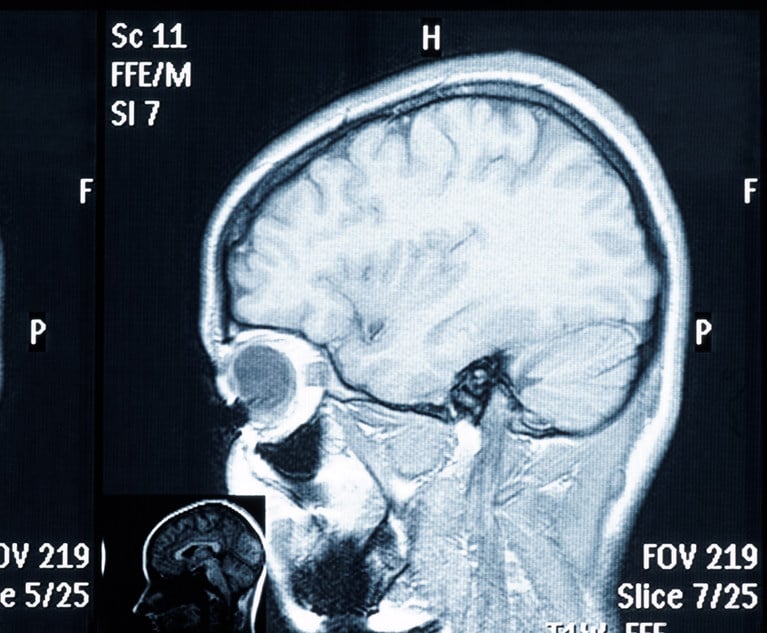NJ Realtors Group Can't Intervene in Weichert Agents' Misclassification Action
The association was concerned with how the Supreme Court's 2015 decision in "Hargrove v. Sleepy's" would apply to its members, the Appellate Division said.
February 24, 2020 at 10:45 AM
5 minute read

An appellate panel upheld the denial of the New Jersey Realtors' motion to intervene in a putative class action claiming agents were misclassified as independent contractors by Weichert.
"Having reviewed NJR's arguments in light of the record and applicable principles of law, we conclude that NJR does not satisfy standing as prescribed by Rule 4:33-3; nor does it meet all four requirements for intervening of right," wrote the panel of Appellate Division Judges Carmen Messano, Mitchel Ostrer and Ronald Susswein in Kennedy v. Weichert.
NJR, described in the decision as "a trade association representing roughly 55,000 members that includes real estate salespersons and brokers," opposed the plaintiff's position in the case.
The panel did allow NJR to serve as amicus in the appeal, from an interlocutory order in the Essex County Law Division.
Darren Barreiro and Barry Goodman of Greenbaum Rowe Smith & Davis in the firm's Holmdel office represented NJR.
"While NJR realtors disagree with the finding that it has no interest in the case, NJR is satisfied in the court's ruling that it can participate as amicus curiae and participate in the appeal," said Barreiro in a phone call.
John Birmingham of Foley & Lardner in Michigan represented Weichert. Ravi Sattiraju of Sattiraju & Tharnay in East Windsor represented plaintiff James Kennedy II. Neither was available for comment.
NJR sought intervention based on concerns that "the precedential or persuasive effect of a pro-plaintiff result will harm its members' interests," according to the decision.
Kennedy alleged in his March 2019 complaint that Weichert misclassified him and others as independent contractors, wrongfully withholding or diverting wages in violation of the New Jersey Wage Payment Law. It contends that employment status should be determined by the "ABC test" per N.J.S.A. 43:21-19(i)(6) and the Supreme Court's 2015 decision in Hargrove v. Sleepy's.
NJR, in moving to intervene in the action, sought to file a counterclaim seeking a declaration under the Declaratory Judgment Act that an exemption in N.J.S.A. 43:21-19(i)(7)(K) applied to licensed real estate brokers.
Superior Court Judge Garry Furnari denied intervention, concluding that NJR had no interest in the relationship between Weichert and Kennedy and the putative class, or "the property or transactions at issue in the case." Furnari said NJR's sole interest was "'whether the Supreme Court's decision [in Sleepy's] applies to them,'" according to the decision. The judge also said allowing intervention would complicate the matter.
The panel in a per curiam decision on Feb. 21 said it agreed with Furnari on all counts.
NJR filed a timely appeal but "[i]n all other respects, it has failed to satisfy the requirements for intervention of right," the panel said. "As a threshold matter, NJR lacks standing to intervene."
"We 'will not … entertain proceedings by plaintiffs who are mere intermeddlers, or are merely interlopers or strangers to the dispute,'" the panel said, quoting case law.
"NJR has no real dispute with Kennedy or the putative class of Weichert salespersons. … NJR as an association has no contract with Kennedy or the putative class. NJR would suffer no alleged injury to itself if Kennedy prevails."
The panel also said that no individual NJR member—other than Weichert itself—would have standing to sue Kennedy over his entitlement to damages.
"Were NJR to intervene, it would put in issue contractual relationships of which Kennedy and the putative class have no knowledge," said the opinion.
The panel also said that NJR filing a declaratory judgment action has no bearing on its right to intervene.
"NJR has no dispute with Kennedy, and would lack standing to file its own claim, on behalf of itself or its members, against Kennedy," the judges wrote. "Even if NJR had standing, it has failed to 'claim[] an interest relating to the property or transaction which is the subject of the action.'"
The judges said the trial court's decision will have no precedential effect on any other court as NJR had feared.
Lastly, regarding its motion to intervene of right, NJR didn't demonstrate that Weichert will not adequately represent its interests, said the panel.
"NJR has not demonstrated that its ultimate objective differs from Weichert's, or that its interests differ with respect to the law governing the relationship between salespersons and brokers," wrote the panel. "In sum, the trial court correctly denied NJR's motion to intervene of right."
The panel said NJR's argument on permissive intervention "fares no better," but it did say—and Kennedy conceded—that NJR's proper role in the case is amicus curiae.
"Therefore, we sua sponte grant NJR permission to do so," wrote the panel. "NJR may file an amicus brief in ten days. Kennedy and Weichert may file a reply within seven days thereafter. NJR may present oral argument."
This content has been archived. It is available through our partners, LexisNexis® and Bloomberg Law.
To view this content, please continue to their sites.
Not a Lexis Subscriber?
Subscribe Now
Not a Bloomberg Law Subscriber?
Subscribe Now
NOT FOR REPRINT
© 2025 ALM Global, LLC, All Rights Reserved. Request academic re-use from www.copyright.com. All other uses, submit a request to [email protected]. For more information visit Asset & Logo Licensing.
You Might Like
View All


The Real Estate Consumer Protection Enhancement Act Brings Industry Change
9 minute readLaw Firms Mentioned
Trending Stories
- 1Rejuvenation of a Sharp Employer Non-Compete Tool: Delaware Supreme Court Reinvigorates the Employee Choice Doctrine
- 2Mastering Litigation in New York’s Commercial Division Part V, Leave It to the Experts: Expert Discovery in the New York Commercial Division
- 3GOP-Led SEC Tightens Control Over Enforcement Investigations, Lawyers Say
- 4Transgender Care Fight Targets More Adults as Georgia, Other States Weigh Laws
- 5Roundup Special Master's Report Recommends Lead Counsel Get $0 in Common Benefit Fees
Who Got The Work
J. Brugh Lower of Gibbons has entered an appearance for industrial equipment supplier Devco Corporation in a pending trademark infringement lawsuit. The suit, accusing the defendant of selling knock-off Graco products, was filed Dec. 18 in New Jersey District Court by Rivkin Radler on behalf of Graco Inc. and Graco Minnesota. The case, assigned to U.S. District Judge Zahid N. Quraishi, is 3:24-cv-11294, Graco Inc. et al v. Devco Corporation.
Who Got The Work
Rebecca Maller-Stein and Kent A. Yalowitz of Arnold & Porter Kaye Scholer have entered their appearances for Hanaco Venture Capital and its executives, Lior Prosor and David Frankel, in a pending securities lawsuit. The action, filed on Dec. 24 in New York Southern District Court by Zell, Aron & Co. on behalf of Goldeneye Advisors, accuses the defendants of negligently and fraudulently managing the plaintiff's $1 million investment. The case, assigned to U.S. District Judge Vernon S. Broderick, is 1:24-cv-09918, Goldeneye Advisors, LLC v. Hanaco Venture Capital, Ltd. et al.
Who Got The Work
Attorneys from A&O Shearman has stepped in as defense counsel for Toronto-Dominion Bank and other defendants in a pending securities class action. The suit, filed Dec. 11 in New York Southern District Court by Bleichmar Fonti & Auld, accuses the defendants of concealing the bank's 'pervasive' deficiencies in regards to its compliance with the Bank Secrecy Act and the quality of its anti-money laundering controls. The case, assigned to U.S. District Judge Arun Subramanian, is 1:24-cv-09445, Gonzalez v. The Toronto-Dominion Bank et al.
Who Got The Work
Crown Castle International, a Pennsylvania company providing shared communications infrastructure, has turned to Luke D. Wolf of Gordon Rees Scully Mansukhani to fend off a pending breach-of-contract lawsuit. The court action, filed Nov. 25 in Michigan Eastern District Court by Hooper Hathaway PC on behalf of The Town Residences LLC, accuses Crown Castle of failing to transfer approximately $30,000 in utility payments from T-Mobile in breach of a roof-top lease and assignment agreement. The case, assigned to U.S. District Judge Susan K. Declercq, is 2:24-cv-13131, The Town Residences LLC v. T-Mobile US, Inc. et al.
Who Got The Work
Wilfred P. Coronato and Daniel M. Schwartz of McCarter & English have stepped in as defense counsel to Electrolux Home Products Inc. in a pending product liability lawsuit. The court action, filed Nov. 26 in New York Eastern District Court by Poulos Lopiccolo PC and Nagel Rice LLP on behalf of David Stern, alleges that the defendant's refrigerators’ drawers and shelving repeatedly break and fall apart within months after purchase. The case, assigned to U.S. District Judge Joan M. Azrack, is 2:24-cv-08204, Stern v. Electrolux Home Products, Inc.
Featured Firms
Law Offices of Gary Martin Hays & Associates, P.C.
(470) 294-1674
Law Offices of Mark E. Salomone
(857) 444-6468
Smith & Hassler
(713) 739-1250







